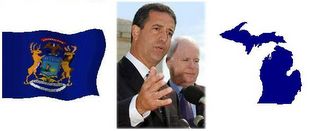The Eleventh Day of the Eleventh Month

In Flanders fields the poppies blow
Between the crosses, row on row,
That mark our place; and in the sky
The larks, still bravely singing, fly
Scarce heard amid the guns below.We are the Dead. Short days ago
We lived, felt dawn, saw sunset glow,
Loved, and were loved, and now we lie
In Flanders Fields.Take up our quarrel with the foe:
To you from failing hands we throw
The torch; be yours to hold it high.
If ye break faith with us who die
We shall not sleep, though poppies grow
In Flanders Fields.- John McCrae
World War I was "the war to end all wars," and it should have been, too: estimates suggest that up to 15.1 million people, including 6.5 million civilians were killed in the war. It marked the end of the absolute monarchy, and the nations of the world had a chance to renounce war, rebuild Europe, and enter a new global society in which we could live together in peace. A League of Nations could offer us a forum to voice our beliefs and negotiate peacefully to settle international conflicts. The Kellogg-Briand Pact was supposed to outlaw war. It could have all worked out.
We came so close. But political interests corrupted the process, and the failed attempt at peace in 1918 led to World War II only two decades later, and the Cold War, and dozens of other conflicts. Indeed, the current Iraq debacle could have been prevented long ago, had the aftermath of the First World War been handled differently.
I'm not a pacifist. I don't deny that there are times when military force is necessary, and there are times when our nation and its allies are attacked that require us to go to war. But today is a reminder that war is the last resort. The only truth about war is that in war, men and women die. They die for causes that seem trivial years later. Military conflict should occur when any and all diplomatic attempts have failed. There's nothing noble or honorable about war. The costs are far too great.
Russ Feingold can't bring about world peace. That will take far more work than a single election, and I doubt that I will ever live to see such a world. But he is a step in the right direction. In 2002 he understood that sometimes force is necessary, but that careful thought needed to go into it, and that it should be used as the last option. He would not have sent us into a bloody, unnecessary conflict.
Today, find a veteran and ask him or her about war. And then think long and hard about what that person says. As I was told once long ago, sometimes war is necessary, but it is never right.




0 Comments:
Post a Comment
<< Home